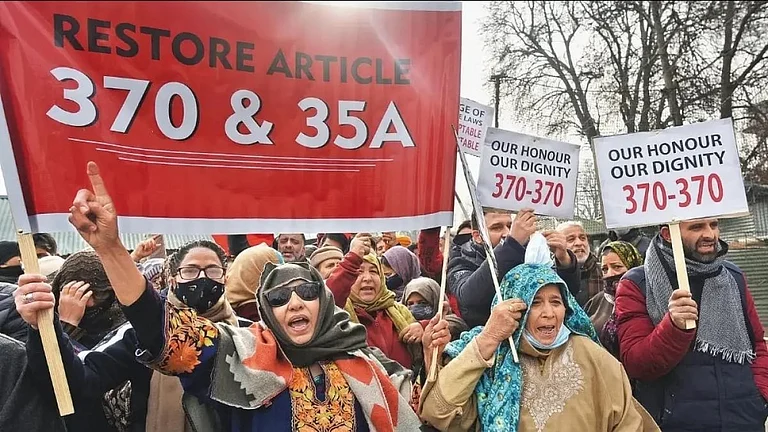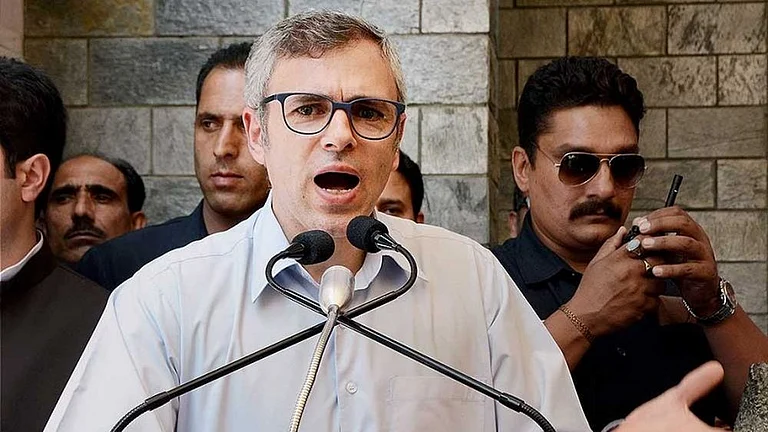
1: The Supreme Court asked the petitioners to consider the ground realities and the April 22 Pahalgam attack while demanding Jammu and Kashmir's statehood restoration.
2: Stating the peaceful Assembly elections, the petitioners argued that there is no impediment of security concerns, violence or any other disturbances which would prevent the grant/restoration of the statehood.
3: The court has asked Centre to respond and has listed the matter for hearing in eight weeks
On Thursday (August 14, 2025), the Supreme Court told petitioners pressing the Union government to fulfil its commitment to restore Jammu and Kashmir’s Statehood that they must also consider “ground realities,” citing the recent Pahalgam terror attack as an example.
The matter came up before a Bench led by Chief Justice of India (CJI) B.R. Gavai. Senior advocates Gopal Sankaranarayanan and Menaka Guruswamy appeared for the petitioners. They repeatedly referred to the Centre’s earlier statement that Statehood would be reinstated.
Representing the Union government, Solicitor General Tushar Mehta questioned the timing of the petition, hinting that the intent could be to “muddy the waters” in the region. He told the court that elections in Jammu and Kashmir had already been conducted as promised and that “several considerations” remained before Statehood could be restored.
The court has sought a response from the Centre and listed the matter for hearing in eight weeks. The CJI said to the petitioners, “You have to take into consideration the ground realities… Remember what happened in Pahalgam,” according to The Hindu.
The plea, filed by Zahoor Ahmed Bhat and activist Khurshid Ahmad Malik, noted that in its 2023 judgment upholding the abrogation of Article 370, the apex court had merely accepted the Centre’s assurance to restore Statehood “at the earliest.”
According to the petitioners’ argument, the peaceful conduct of Assembly elections showed there were no security or law-and-order hurdles to prevent the restoration.
“Therefore, there is no impediment of security concerns, violence or any other disturbances which would hinder or prevent the grant/restoration of the status of Statehood to Jammu and Kashmir as had been assured by the Union of India in the present proceedings,” the petitioners had argued.
The delay was a breach of federal principles enshrined in the Constitution’s Basic Structure, as per the petitioners.
In its 2023 verdict, the Constitution Bench—the then CJI D.Y. Chandrachud—had unanimously upheld the President’s authority to revoke Article 370, paving the way for the State’s reorganisation into two Union Territories along with the removal of its special status.
The court mentioned the President could act unilaterally if “special circumstances warrant a special solution,” describing the move as the final step in a decades-long, coordinated process between the Centre and the State to fully integrate Jammu and Kashmir into the Indian Union and extend all constitutional rights and obligations to its people.



























